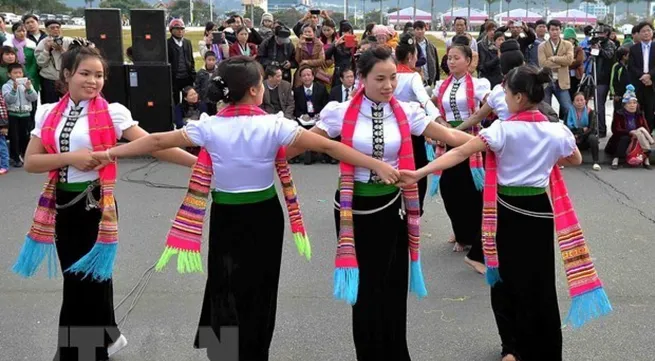UNESCO recognises Xoe Thai as Intangible Cultural Heritage of Humanity

The honour was unveiled during the 16th session of the UNESCO's Intergovernmental Committee for the Safeguarding of the Intangible Cultural Heritage that is taking place from December 13 to December 18.
Along with 48 other nominations, Xoe Thai has successfully met all five criteria set forth by UNESCO.
The recognition of Xoe Thai as the Representative of the Intangible Cultural Heritage of Humanity therefore affirms the international community’s appreciation of Vietnamese cultural values.
It also serves to elevate the country’s position as part of the world's intangible cultural map, and at the same time to promote the UNESCO’s endeavor to preserve and develop heritage values.
Ambassador Le Thi Hong Van, permanent representative of Vietnam to UNESCO, emphasised that the event has contributed to enriching the diverse cultural landscape of Vietnam in particular and of the world in general.
It has also helped to introduce the quintessential nature of Vietnamese culture full of tradition and identity, as well as to elevate the image of a dynamic country and a friendly, hospitable people to the wider international community, Ambassador Van said.
She added that the inscription is anticipated to facilitate economic and cultural development in localities and communities in a sustainable manner.
Xoe Thai is a unique type of traditional dance that is closed associated with and plays a significant role in the daily life of the Thai ethnic communities residing in the northwestern part of Vietnam, especially in the provinces of Lai Chau, Dien Bien, Son La, and Yen Bai. It is performed during various community activities, from festivals to funeral rituals.
Xoe Thai is Vietnam’s 14th intangible cultural heritage recognised by UNESCO and also the fifth that has won the organisation’s title this year.





